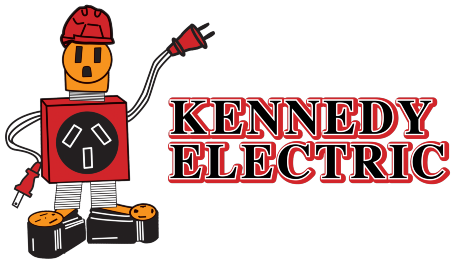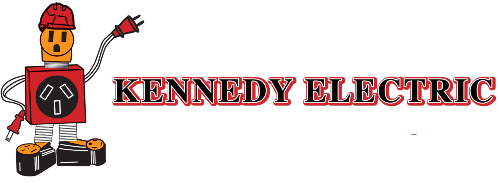Top Signs a Home Needs Wiring Updates and Installations
Recognizing the signs that indicate a home needs wiring updates and installations can prevent serious issues and certify the system operates optimally.
Maintaining a home's electrical system is crucial for safety and efficiency. Over time, wiring can become outdated or damaged, leading to potential hazards. Recognizing the signs that indicate a home needs wiring updates and installations can prevent serious issues and certify the system operates optimally. Here are some key indicators that it may be time to contact a residential electrician for a wiring inspection and potential upgrades.
Frequent Electrical Surges
Frequent electrical surges indicate that the home's wiring may be compromised. Surges can begin from faulty wiring, damaged power lines, or appliances with high power demands. They can damage electronic devices and reduce their lifespan. A licensed electrician can diagnose the source of the surges and recommend appropriate solutions, such as rewiring or installing surge protectors.
Circuit Breakers Tripping Often
Circuit breakers are intended to trip and cut off the electrical supply when there is an overload or short circuit. Frequent tripping of circuit breakers indicates that the electrical system is overloaded or has a fault in the wiring. This can be a safety hazard and may require upgrading the electrical panel or rewiring to handle the current electrical load more efficiently.
Dimming or Flickering Lights
Dimming or flickering lights can signal wiring issues, especially when using multiple appliances. This could be due to loose or corroded connections, overloaded circuits, or outdated wiring that cannot handle the demand. A residential electrician can inspect the cause and suggest necessary updates to stabilize the electrical supply.
Burning Smell or Discolored Outlets
A burning smell or discolored outlets are urgent signs that the wiring is overheating. If not addressed promptly, this can start electrical fires. The smell may come from frayed wires or loose connections that generate heat. Discolored or charred outlets are clear indications of overheating and should be inspected immediately by a licensed electrician to prevent further damage and potential fire hazards.
Outdated Wiring Materials
Homes with aluminum wiring, knob-and-tube wiring, or other outdated materials may require rewiring to meet current safety standards. Aluminum wiring, frequently used in homes built in the 1960s and 1970s, can oxidize and cause connections to loosen, leading to overheating. Knob-and-tube wiring, used in homes built before the 1940s, lacks grounding and cannot support modern electrical loads. Upgrading to copper wiring and installing ground fault circuit interrupters (GFCIs) enhances electrical safety.
Insufficient Outlets
A home with insufficient outlets often uses multiple power strips and extension cords, which can overload circuits and create hazards. Modern households have numerous electronic devices that require adequate outlets to avoid overloading. Installing additional outlets and upgrading the electrical panel can distribute the electrical load more effectively and safely.
Buzzing Sounds
Buzzing sounds from outlets, switches, or the electrical panel can indicate loose wiring or connections. This can cause electrical arcing, which generates heat and poses a fire risk. An electrician can diagnose the noise source and perform the necessary repairs or rewiring to eliminate the buzzing and enhance safety.
Old Electrical Panel
An outdated electrical panel may not support the current electrical demands of a modern home. Panels with fuses instead of circuit breakers or those over 25 years old may need replacement to accommodate increased power usage safely. Upgrading to a new panel with higher capacity can prevent overloading and improve the home's electrical system efficiency.
Frequent Electrical Shocks
Electrical shocks when plugging in appliances or touching switches are a serious sign that the wiring is faulty. Shocks can result from exposed wires, poor grounding, or faulty outlets. A residential electrician must immediately inspect the area to address these issues and replace damaged components to prevent injury and enhance electrical safety.
Aging Wiring
Wiring over 30 years old may not be able to support the electrical needs of modern appliances and devices. Over time, insulation around wires can degrade, leading to exposure and potential short circuits. Rewiring an aging electrical system can provide a safer and more reliable power supply, reducing the risk of electrical fires.
Regularly updating and maintaining a home's wiring is essential for safety and functionality. Recognizing the signs that indicate the need for wiring updates can prevent potential hazards and ensure the electrical system operates efficiently. Consulting a licensed electrician for inspections and necessary upgrades will keep the home safe and up-to-date with current electrical standards. Investing in a home's electrical infrastructure is a proactive move toward creating a secure and comfortable living environment.
Kennedy Electric is a licensed, insured, and bonded electrician offering CCTV wiring, pool and spa wiring, electrical wiring for barns, whole-home rewiring, boat lift marina electrical wiring, and generator inlets/interlocks installation solutions to residential and commercial customers. Call today at 352-799-3434.


